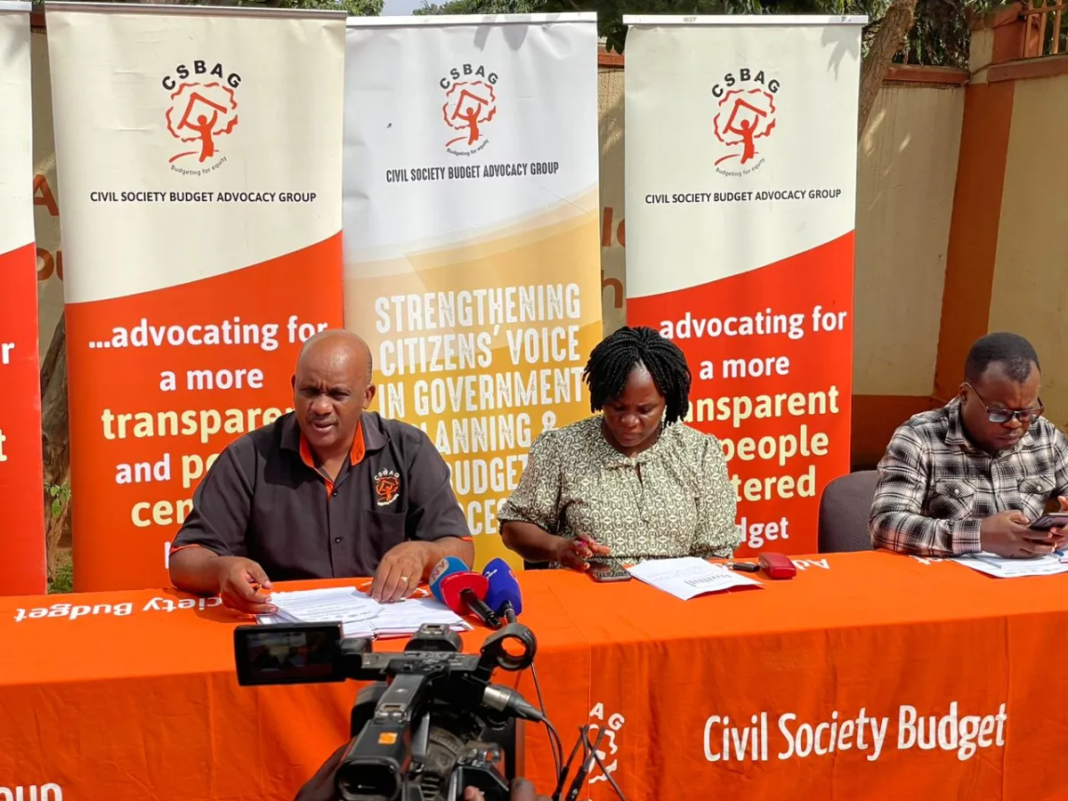The Civil society organisations operating in Uganda have appealed to the government to reprioritize public expenditure in order to survive the effects of the World Bank move to suspend new loans to the country.
Speaking at a press conference in Kampala on Sunday, August 13, 2023, the Civil Society Budget Advocacy Group (CSBAG) warned that since the World Bank has been providing attractive and affordable concessional loans, targeting social services like infrastructure, health and education, the decision to halt them will most likely affect poverty eradication measures, increase inequality, and service delivery in social sectors, which could call for domestic loans.
“The World Bank has been supporting schools, hospitals, and community roads; the ordinary person is the one going to suffer because of the decision to stop new funding,” said Julius Mukunda, chief executive officer of CSBAG.
“This government needs to start planning to live within its means. This means cutting public expenditure and reducing wastage. For every decision you make, there’s an impact,” he added.
CSBAG listed World Bank Project Interventions in Uganda, by March 2023 as Uganda Skills Development Project (UGX 370b), which benefited more than 82,000 youth; Uganda Development Response to Displacement Impacts Project (UGX 555b), which supported 2,828,155 refugee host communities and Uganda Multi-Sector Food Security and Nutrition Project (UGX 102b) which has supported more than 1,000 Gov’t aided schools with demonstration gardens to promote the production and consumption of micro-nutrient-rich foods.
Others are: Health Systems Strengthening Project (UGX 532b), which has supported more than 230 health facilities countrywide with medical equipment; Albertine Region Sustainable Development Project (UGX 153m), which supported the upgrading of approximately 100 kilometers of road from Kyenjojo to Fort Portal- Mubende-Kampala through Kagadi town and Uganda Support for Municipal Development Project ( UGX 555b), which has supported 14 municipalities with modern infrastructure like roads, street furniture, solid waste management, and development of markets and urban transport facilities.
The Ministry of Finance recently revealed that it was considering revising the 52-trillion shilling national budget downwards following the World Bank announcement. But Gilbert Musinguzi of Uganda Debt Network warns against tampering with the allocations for some sectors, especially the human capital development, which he said should be a no-go area.
Instead he emphasises the need to be economical with the available resources.
“We want to see frugality in government spending,” says Musinguzi, the Quality Assurance Manager at UDN. “Let’s live within our means because things are becoming tighter. In the future, we should work with the development partners on some legislation, to avoid a repeat of the same.”
Jonas Mbabazi, a project manager at ACODE Uganda, warned of renewed poverty among women and youth.
“We are going to see more women and young people sliding into poverty and this will hamper poverty reduction, so can we be frugal with our resources?”
He also expresses fears over an expected increase in borrowing and the impact it could have.
“The likelihood of an increase in domestic borrowing by the government is going to affect access to financing by the private sector; we will not create more jobs and fewer taxes will be created,” said Mbabazi.





